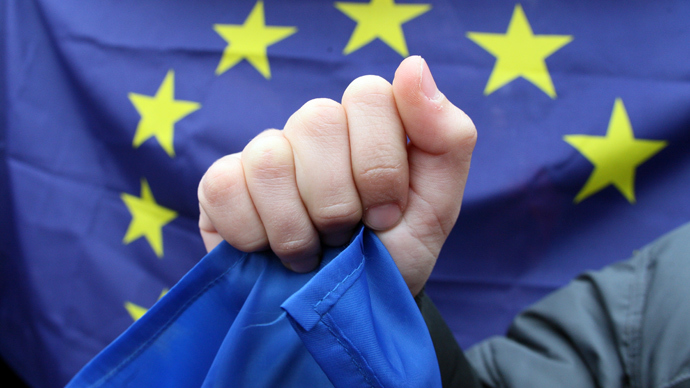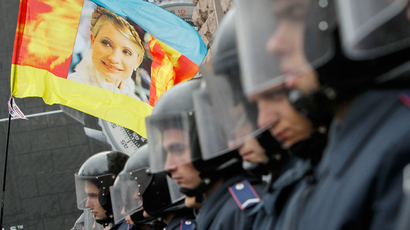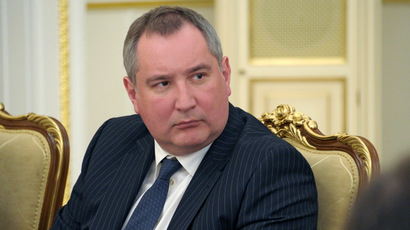Russia denounces EU over ‘harsh pressure’ on Ukraine

Top Russian parliamentary officials have blasted as “old psychology” the attempts of certain European politicians to use pressure and interference in order to influence Ukraine’s choice of future cooperation with the EU.
“We see certain European Union officials quite harshly meddling with Ukraine’s internal affairs and applying unprecedented pressure regarding the signing or not signing of the association agreement with the EU,” State Duma speaker Sergey Naryshkin told reporters on Thursday.
“Such pressure on a sovereign state should be considered as a desire of certain politicians to maintain the old psychology,” he added.
Naryshkin added that in his view all nations should move forward from drawing division lines in Europe and that the philosophy of the Eurasian economic space currently being built by Russia and its allies included cooperation with the EU states.
A short time earlier the head of the State Duma International Relations Committee, Aleksey Pushkov, said European officials had little leverage to influence Ukraine’s decision and that talks over possible integration were bound to continue.
Pushkov added that the Russian authorities did not object to Ukraine’s sovereign choice, whatever it may be.
“If we were told that Ukraine was joining NATO, in this case we would really oppose such a step,” he noted.
The relations kit suggested by Brussels does not satisfy Ukraine and the reasons for this are clear – the EU has not described the sources of funds it plans to spend on Ukraine’s modernization or explained how it plans to compensate the losses that Ukraine’s producers will suffer when they lose free access to the Russian market, Pushkov said.
According to Pushkov, the objectives pursued by the European politicians were purely selfish – to allow EU’s businesses to Ukrainian markets and to improve the union’s image, seriously undermined by the recent crisis.
“They are very hurt by Ukraine’s likely refusal to sign the association agreement as it was planned as a major political operation aimed at EU’s restoration,” he told the newspaper.
The signing of the agreement was initially expected to take place at the third Eastern Partnership Summit opening on November 28 in Vilnius, the capital of Lithuania, which currently holds the rotating presidency of the European Union.
The conference is dedicated to strengthening ties between the EU and several ex-Soviet republics - Armenia, Azerbaijan, Belarus, Georgia, Moldova and Ukraine. All these countries are Russia’s neighbors and close economic partners with trade preferences.
Ukraine planned to sign an association agreement with the EU at the summit, but scrapped these plans after consulting with Russia. Moscow claimed it will have to protect its markets from cheap and low-quality Ukrainian goods that would not stand the competition with European products.
The refusal caused a wave of protest in the Ukrainian capital and in the Ukraine’s western regions, however people rallied in support of this move in the pro-Russian east.
After the Thursday opening of the Vilnius Summit, European Commissioner for Enlargement and European Neighborhood Policy Stefan Fule said that Ukraine did not have to choose between cooperation with Russia or the EU.
"There is no dilemma between Russia and the EU... Nobody is asking Ukraine to withdraw its traditional treaties with Russia," the official noted.














